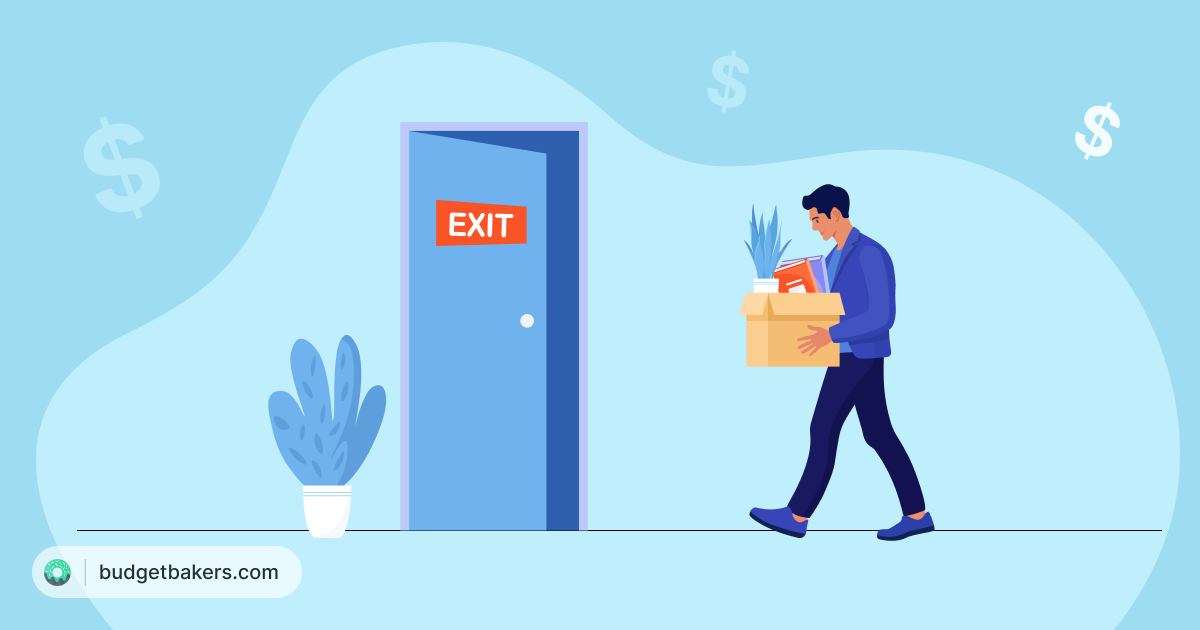Written and fact-checked by financial expert
Lloyd
For millennials and Gen-Z, especially in western countries, the meaning of work and a happy life have changed drastically in recent years. Especially in America, the promise of opportunities and financial stability with the help of budgeting that came with a college degree or technical education has evaporated for many of us. The cost of education has grown completely out of control, and the job security enjoyed by past generations is being disrupted, by automation, by rapid social change, and by greed. And these are not the only reasons.
A massive shortage in housing and years of extremely low interest rates have driven prices completely out of control. Today millennials in their late twenties and early thirties are way behind on saving for retirement, home ownership, and having kids. Many are now taking drastic measures to reduce this gap, leaving large cities and downscaling their lifestyles and saving money. Retirement savings in the United States grew to about 10% during the past three years, partly due to the COVID’s epidemic, but also because millennials are making different lifestyle choices than previous generations have. Not that we have much of a choice.
Home prices have risen, and average median household income has barely changed since 2000. Whereas the average home price is now 118% (inflation adjusted) of the price in 1970, median household income has risen only 15%. A home buyer in 1970 could expect to be able to pay for a family home worth about 2.5 times their annual salary, but today the figure for a similar home being paid for with a similar job would be equivalent to over 8 years of a millennial’s average salary.
The Good News
The good news for younger people today is that some of this is changing. While higher interest rates on mortgages are painful right now, they will also have the effect of keeping house prices from growing faster. In addition, the increasing cost of living due to inflation, combined with the wave of baby boomers who are now retiring, means not only that more houses will soon be on the market, but that wages for younger workers will probably have to catch up to allow companies to continue operating. This will gradually decrease income inequality, and somewhat make up for the lack of growth we have experienced in our incomes since we entered the workforce.
This has dual implications for millenials and Gen-Z. On the one hand, it means that over time, the cost of living will probably get closer to the average salary, and the cost of a home will probably fall in relation to that salary. On the other hand, it also means that the era of extremely cheap or even free services will probably end. We are already seeing these effects, as companies like Netflix, Airbnb, and Google reduce investment in improvements and expansion of their services, and instead raise prices to gain revenues. We will see more of this trend in the future, which means that the cheap services we are used to will become more expensive.
Still, might be good news. That’s because these trends show us an opportunity to change our approach to life, to start budgeting, and in so doing, be ready and even happy to see these changes come out.
So why are rising prices of services, and falling prices of homes good for us?
You Should Welcome More Control Over Your Choices
An important effect of this higher-cost, but also higher salary era is that it gives us more control over our lives.
How? Well, to understand this, we need to go over a really important aspect of consumer economics. I promise it won’t be hard to follow.
In consumer economics, there is a division between two kinds of things you buy. There are “elastic” and “inelastic” products and services.
Elastic = Choice
Elastic goods mean that you have choices between a range of products and services that are similar. For example, internet streaming is now more elastic than it used to be, because there are more competing services offering the same things. This allows us to choose between these services to seek the best value among them. We can turn off our Netflix, and get Prime, or HBO, or Peacock, or Disney+.
It may seem like having to choose between these products is annoying or inconvenient, but it actually gives you a lot more power. If any of those companies does something you don’t like, you can change your choice. This shows the other companies what you will accept, and punishes those who treat customers poorly. That improves the value of the other services by forcing them to become more appealing. Prices may not drop, but they cannot rise as quickly as inflation.
Another very important aspect of this is that it also applies to employment. When there are more workers than jobs, companies do not have to compete for workers. They can cut benefits and pay without being punished. But when there are more jobs than workers, this changes. Now companies will be forced to raise wages and provide better benefits to get you to work for them. And since more people are leaving work than entering now, this trend will also continue.
Inelastic = No Choice
Some goods and services are inelastic. Goods like medical care, transportation, electricity, gas, and food are less elastic, because everyone absolutely needs them all the time. This allows companies to compete less with each other, knowing that you will have to buy their products anyway. That’s the reason an X-ray can cost a huge amount of money, even though the equipment is decades old and can be found in many places. Hospitals know you can’t go around getting prices for x-rays. You have to pay for what they have, so they don’t need to compete on price.
The same can be true for housing. If you are a real estate company, your incentive is to build only expensive homes, and fewer of them, because anyone who wants a home will have to buy what’s available. That means prices go up, but quality doesn’t go up nearly as fast. 50 years ago, it was easier to build and sell a home. Land was cheaper, there were more buyers, and so there was more competition. Today, as prices have risen and costs have gone up, the incentive is to make less and sell it for more. The world of “McMansion Hell” was born: a lot of cheaply made, badly designed, but overly expensive homes few can afford anyway.
Inelastic goods and services are bad for you because they don’t give you as much choice. If the cost of a house in your community is three times more than you can reasonably afford, your choice is to either move, or pay more. That’s terrible for your economic prospects and destructive to our local economy too. You will have less money to spend on other things, maybe have fewer kids, and participate in your community less than if you could afford to rest a little and do important things that aren’t about making money. Despite the huge rise in technological conveniences, Americans now work just as much or more than they did 40 years ago. And it’s because there are so many inelastic goods around us.
A Strategy For A Happier Life
So your strategy for a happier life can be to try to reduce your reliance on inelastic goods, and increase your reliance on elastic products instead. Budgeting is a very efficient tool to achieve this. One way to do this is to move to a lower cost community, and telecommute if possible. Living somewhere that has a better average wage compared to the cost of housing is a really good way to reduce your use of elastic goods. American and European cities are far less affordable than they used to be, and this problem will not get better soon. But the good news is that companies and younger people recognize this, and are taking advantage. You can budget for a better life by finding a place where your economic prospects are better and can afford your necessities more easily.
Another way to increase your freedom of choice is to switch the services and goods you use more often. Spending extra time to compare features and price is a way for you to get many of the same important qualities for a better value. While this takes more work, it may also be aided by the last point.
A Happier Budget: More of Less
It’s said that people are generally “happiest” when their lifestyles cost about 1/3rd to ½ of their income. Now that may sound crazy to you, since the consumer dream is to get “as much as you can get.” This is how western countries teach their citizens to think: success is having more.
But success is not only about having more. Success is also about having enough. By simply imagining that the lifestyle you can afford is 30% lower than the lifestyle you think you need, you can change the way you look at the world around you, and see opportunities to increase your happiness without spending more money.
The truth is that the happiest person is often just the one who knows where their next mean (or rent payment) is coming from. If you budget for only 70% of the life you know you can afford, you will acquire something far more valuable than 30% of your income. You’ll acquire a new appreciation for things outside of work and spending. Freedom is a subjective thing. Getting more doesn’t necessarily make us free, or happy. Choosing to have less can make us feel more free. It’s paradoxical, but often true.
Does this advice work for everyone? Absolutely not. As many as half of Americans are living paycheck to paycheck, and it would be grossly unfair to say to these people that the problem is their choices. It’s just not true. The economy is unfair to such people. It’s expensive to be poor, and they are doing what they believe they need to do to survive.
But for those who can make the choice to reduce their need for material things, that choice is a good option for living a better life. An easy option? Not necessarily, but possibly the best investment you could ever make in yourself: the investment of peace of mind.


